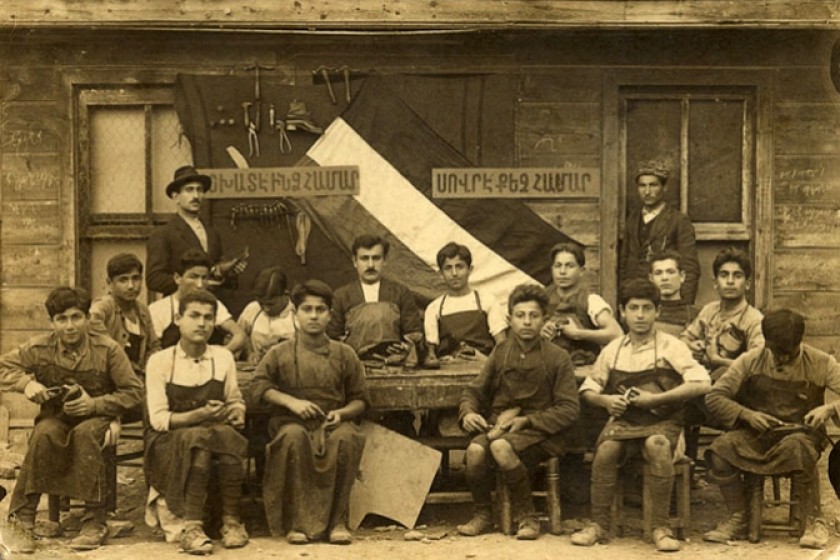
Reasons for Leaving Soviet Armenia, or Unsuccessful Experience
Aghasi Tadevosyan, Cultural Anthropologist
Reading the stories of 1946-1949 repatriates I can’t help wondering how people who simply longed to come to Armenia could regret their decision and wish to go back to where they came from hours after arriving in Armenia or even right after getting off the ship. Those stories revolve around the blatant contradictions regarding the Motherland and the Soviet reality as well as the sudden and abrupt breakdown of all upbeat expectations.

MARI HARUTYUNIAN
Repatriated from USA in 1947 / Lives in Glendale (California, USA)
And we saw that life there was totally different than what we expected. But my father again said, "Girls, this is Batum, we are going to Armenia. Armenia will be different, it will be better."
Such conflicting feelings used to emerge among most of repatriates after their first communication with rude and impolite Soviet officials that used to exercise their authority in a manner that could be best described as “contemptuous.” Apathy and ignorance that formed an integral part of the behavior of middle- and lower-ranking Soviet officials used to sow a feeling of hopelessness and disappointment, which remained rooted in most of them even many years down the road, and the “leaving will save us” moaning morphed into an idiom over time.
One of the first “discoveries” that aroused unpleasant emotions and discontent in repatriates is that of geography – they had longed to come to Armenia, but somehow had appeared in Soviet Armenia. Thus, they had longed for one country, but had appeared in another one, which was different from what they expected. Another surprising discovery that spurred uneasiness was finding out the difference between them and the Soviet Armenians – the latter represented a “race” molded by high-level officials and fitted to the communist ideology, a “race” the common nature of which had the national ideology inferior to the Soviet socialist ideology. And the “species” that were different from that race were viewed as deserving rebuke, which could even result in exile or imprisonment.
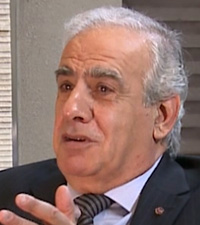
HARUTYUN KARAPETIAN
Repatriated from Palestine in 1960 / Lives in Glendale (California, USA)
The man was a patriot. He’d sing about Andranik. They’d say he was a nationalist, a Dashnag.
There was also the Soviet patriotism into which the feelings and ideas of former Diaspora Armenians did not tuck. People had come to Armenia believing it to be a national state but even whispers about national dreams, historic motherland, national heroes, genocide and other such topics could expose them to danger. The middle- and lower-ranking Soviet officials of Armenian descent, the dreadful wardens, the overt and covert traitors (why not, even from among the immigrants) commonly referred to as “ears in the walls” were a real bottleneck to a national life.
Making a living was another difficulty people in the Soviet Union faced. However, they were comprehensible (just recently the country had been at war) and surmountable (“it’s okay, life will get better gradually). The state ban that deprived people of the opportunity to pursue creative work, perform kind deeds through their skills and make money are what were totally incomprehensible and insurmountable for them.
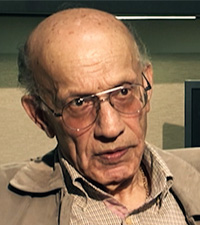
HARUT PARSAMIAN
Repatriated from Lebanon in 1946 / Interview conducted in Irvine (California, USA)
My father was a shoemaker. Before coming to Armenia, he had purchased a new shoe factory from England and France. We brought the equipment to Armenia. My father wanted to set up a modern shoe factory in Armenia. We went to Yerevan. For the next 2-3 years, my father kept going to the immigration committee. He’d go to the so-called foreign affairs ministry. They’d tell him, "Yes, yes, be patient. When the electricity situation in Armenia improves we'll bring the equipment here and build a factory. You’ll be the director, etc, etc." It was all a pack of lies, terrible lies…
Most of the repatriates had come to Armenia for exactly that purpose and had even brought production tools and raw materials, however, they were forced to give up their plans and work at state institutions for insufficient salaries. Talking, complaining, criticizing about all this was state-prohibited and viewed as deserving condemnation.
ANAHIT POGHIKIAN
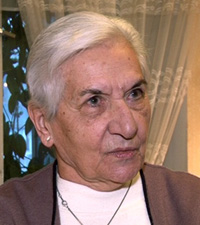
Repatriated from Syria in 1946 / Lives in Yerevan
Our teachers would give such rousing lectures during Marxism-Leninism classes or history classes, that we got excited as well. We were young. I, in particular, would get enthusiastic and say, don’t worry, it will pass, it’s our Fatherland.
Ideological pressures, delusion and fallacy that flooded people’s life appeared insurmountable and repelling to the repatriates. Writers in the Soviet Union used to write, singers used to sing and the state-party officials used to deliver long speeches on human achievements, accomplishments and attainments and consequently, on poverty-free and prosperous life.
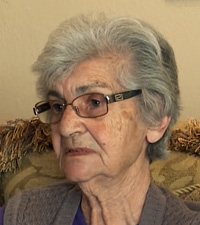
SHAKEH CHUGASZIAN
Repatriated from USA in 1947 / Lives in Glendale (California, USA)
Slowly, everything started to improve. It wasn’t good in comparison to America, but compared to the past Soviet years, it was very good.
Even the happy 1970-1980s were a period of poverty, poor quality, deficit, endless lines for food and essentials. “Forage” was the most frequently used verb in daily talks and chats. There were few things that could be easily foraged in the Soviet Union, but along with all that the Soviet propaganda was preaching distinct patriotism the sole goal of which was to conceal the reality.
Repatriates were people aware of a reality different from that of the Soviet. They could spot the hollowness of agitation and praise, clearly knowing that the equality deemed to be the rare merit of the Soviet Union did not exist at all.
The society was sick and in that very society there was massive corruption, and things like patronizing, privileges, theft and waste of social wealth were something natural and common. The material benefits the amount of which was not high were not evenly distributed among the general public (majority) and the privileged (minority).

ROBERT DER-MERGERIAN
Repatriated from France in 1947 / Lives in Marseille
At the time, there were many jokes about the repatriates. I’ll tell you one. A man is walking in the street. They ask him, were their donkeys in your country? He answers, there was one donkey. It was me. Now, I’ve come here.
As time elapsed, the idea of leaving the Soviet never ceased “to haunt” most of repatriates. It was always there, both in late 1940s when they were just settling in Armenia and in late 1980s. They were West-oriented: it meant they longed for countries that were considered enemies to the Soviet Union. They used to draw opinions of these countries through their Diaspora Armenian friends and relatives (communication, visits, correspondence, etc.).

HAKOB ANDRIKIAN
Repatriated from France in 1947 / Lives in Paris
Our family would secretly listen to Monte Carlo Radio and the Voice of America. They’d take me out of the room when they put the radio on. They’d tell me to walk around the house so that no one could hear. I was young. I wandered around the house…
Per that scrappy and sometimes cloak-and-dagger (marked by hidden aims due to possible censorship) information, you could breathe free and easy in those countries, speak of anything you would like to, not be afraid of state officials and do business without being viewed as a criminal.
That is why they used even the slightest opportunity to break free from the iron curtain and roll into a “free” world. In most cases, the “free” country they were opting for was not the one where they used to live in before repatriation. The 1946-1949 repatriates came from over 10 countries, however, almost all of them were trying to “return” to the U.S. As a matter of fact, French Armenians were trying to go back to France, some of the Lebanese Armenians were choosing to go to Lebanon since it was much easier to move to the U.S. from there.
Accordingly, the “blissful West” was being identified with the U.S., which was the direct opposite of the Soviet Union. It was a free and explicit world in terms of all aspects of life; a world in which the rich were rich, the average were average and the poor were poor; a world where things were being called by their names, where a person felt himself a human and not just a mass under the press of the Soviet system.
The emigration of the repatriates began in late 1950s. Emigration was observed in the 1960s as well but it was not large-scale – only the most persistent were getting the permission to leave the Soviet, mostly the ones that had persuasive family ties in the West. In 1970-1980s, repatriates were basically fleeing from the Soviet Union.
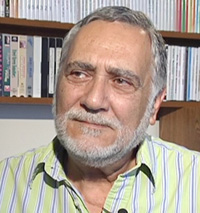
ARMEN ACHEMIAN
Repatriated from Egypt in 1948 / Lives in Glendale (California, USA)
After living in America I finally experienced how a person can live a free life and how to advance one’s principles. In Armenia, we weren’t allowed to respect our principles or do what we wanted.
According to the Soviet agitation, materialism was the root cause of emigration among people, while in reality people were escaping from slavery to freedom, from humiliation to a decent life, from unruliness to legitimacy, from ideological enforcement to real world. And if materialism indeed underlay the idea of the emigration, it was nothing but aspiration to have the chance to do business, make money and become rich. The majority of the 1970-1980 emigrants today form part of the U.S. middle class, which means that they eventually succeeded.
The emigration closed the repatriation cycle the evaluation of the sad and adverse implications of which require special and thorough study. But the on-hand materials we possess, especially interviews with the repatriates allow us to conclude that we are dealing with what can be called “unsuccessful repatriation.” Unfortunately, the inertia of the failure has been preserved to date, thus adversely affecting post-Soviet Armenia.
Translator Ani Babayan
………………………….
This article is prepared within the framework of “Two Lives: The Cold War and the Emigration of Armenians” project financed by National Endowment for Democracy (NED).
 Videos
Videos Photos
Photos




Comments (1)
Write a comment